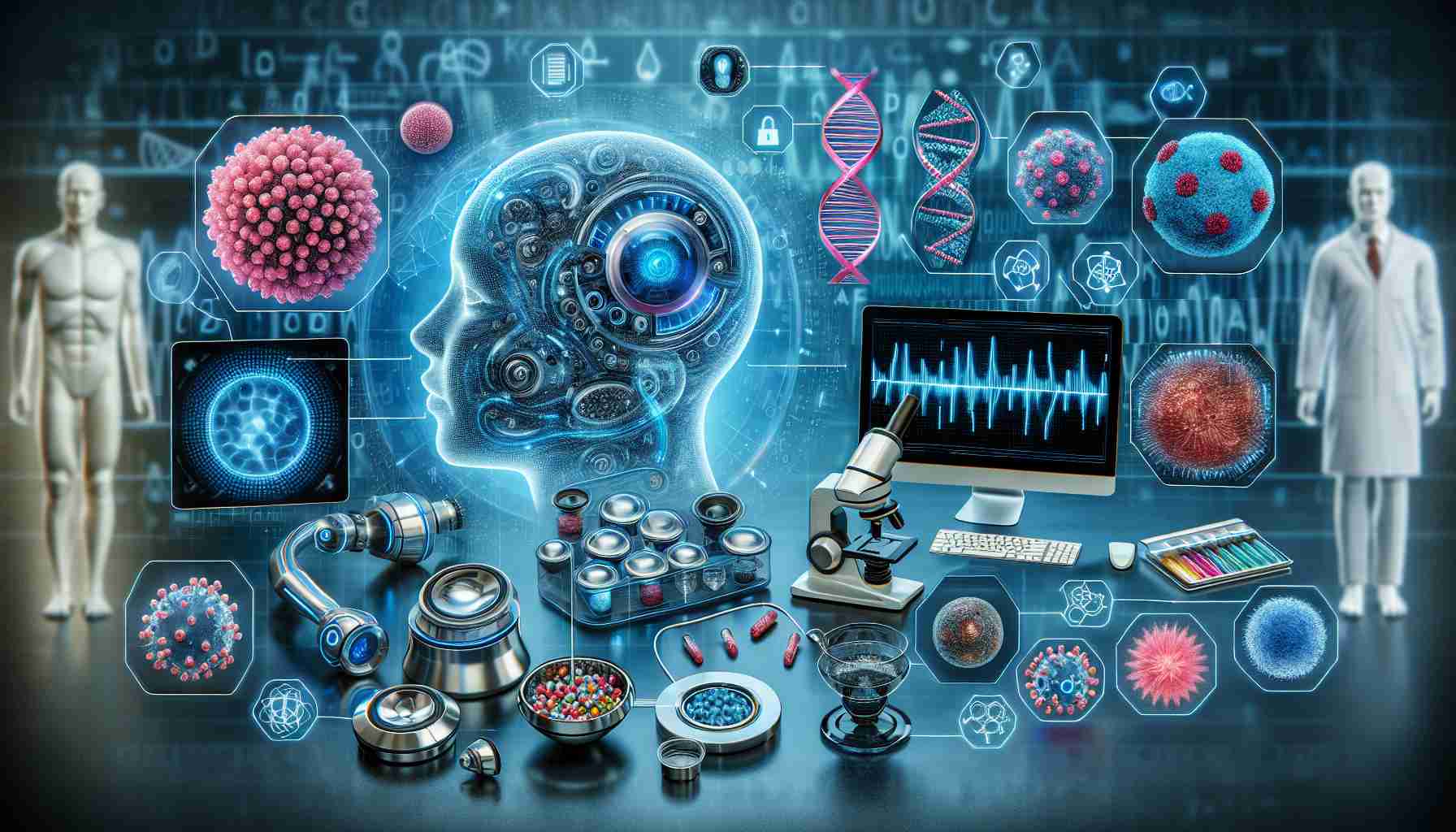Summary: Two comprehensive review articles in the journal AI in Precision Oncology highlight how artificial intelligence (AI) is revolutionizing the early detection of cancer. These reviews elaborate on AI’s multifaceted role in precision medicine, including diagnostic improvements and treatment personalization.
The remarkable advancements in artificial intelligence (AI) herald a new age in cancer care, particularly in the sphere of early detection. In recent explorations published by AI in Precision Oncology, medical experts delve into the advancements of AI and its clinical benefits. Dr. Nikhil Thaker, a prominent figure in radiation oncology, alongside his peers, outlines the vibrant landscape of AI as a pivotal tool in oncology, touching upon its integration with various data types such as electronic health records, medical imaging, and genomics.
The application of AI in oncology is not just theoretical; it is a practical tool that has begun to refine the way we approach diagnosis and treatment options, enabling clinicians to adopt a more personalized treatment selection. AI’s contribution extends to pioneering efforts such as the use of wearables and mHealth applications for early cancer detection.
In an era where data complexity often overwhelms healthcare providers, AI emerges as an essential ally, working in tandem with medical professionals rather than replacing them. This balanced approach necessitates a comprehensive, multidisciplinary effort for successful integration into the realm of medicine.
According to Dr. Douglas Flora, the Editor-in-Chief of the journal, these seminal papers underscore the transformative influence of AI on healthcare, inciting a welcome move towards higher standards of cancer screening and detection. They offer a lucid vision for the future, advocating for the adoption of AI technology to harness the maximum potential of healthcare innovation.
Artificial Intelligence in Oncology: A New Horizon in Cancer Care
The healthcare industry is witnessing a paradigm shift as artificial intelligence (AI) is becoming integral to oncology, significantly transforming early cancer detection and treatment strategies. The substantial contributions of AI in precision medicine have become more pronounced, as evidenced by review articles published in the journal AI in Precision Oncology.
AI’s integration into oncology spans a broad range of applications, from enhancing diagnostic accuracy through the analysis of electronic health records, medical imaging, and genomic data, to the personalization of treatment plans tailored to individual patients. Groundbreaking technologies, including wearables and mHealth applications, leverage AI to facilitate the early detection of cancer, thereby potentially increasing the rates of successful intervention.
The interplay of AI with substantial volumes of complex medical data represents a notable challenge for practitioners. However, by collaborating with medical professionals, AI acts as a potent collaborator and not a substitute. The union of AI technologies with human expertise represents a holistic and multidisciplinary approach, which is essential for realizing the full potential of these advanced tools in the clinical environment.
As the industry progresses, market forecasts predict a significant growth in the AI in healthcare sector, with particular expansion in the realm of oncology. This growth is stimulated by the rising global cancer burden and the demand for more efficient diagnostic and treatment methods. By enabling earlier detection and more precise therapies, AI is opening doors to better patient outcomes and more cost-effective healthcare solutions.
However, the integration of AI into healthcare does not come without its challenges. Issues such as data privacy, security, the need for extensive datasets for AI training, and regulatory hurdles remain at the forefront of the implementation process. Moreover, there remains skepticism among healthcare providers about the reliability and accountability of AI systems. Addressing these concerns is crucial for the successful adoption and scaling of AI in cancer care.
Despite these challenges, the potential of AI in revolutionizing cancer detection and treatment is clear. Editor-in-Chief of AI in Precision Oncology, Dr. Douglas Flora, emphasizes this sentiment by supporting the advancement of AI as a transformative force that should be harnessed to elevate healthcare to new heights.
For those interested in exploring the digital transformation taking place in healthcare, further insights and perspectives can be accessed through credible sources such as the official website of the World Health Organization (WHO) and the American Cancer Society (ACS), which offer a global and national overview of the impact of AI technologies in the medical field.
The source of the article is from the blog tvbzorg.com

